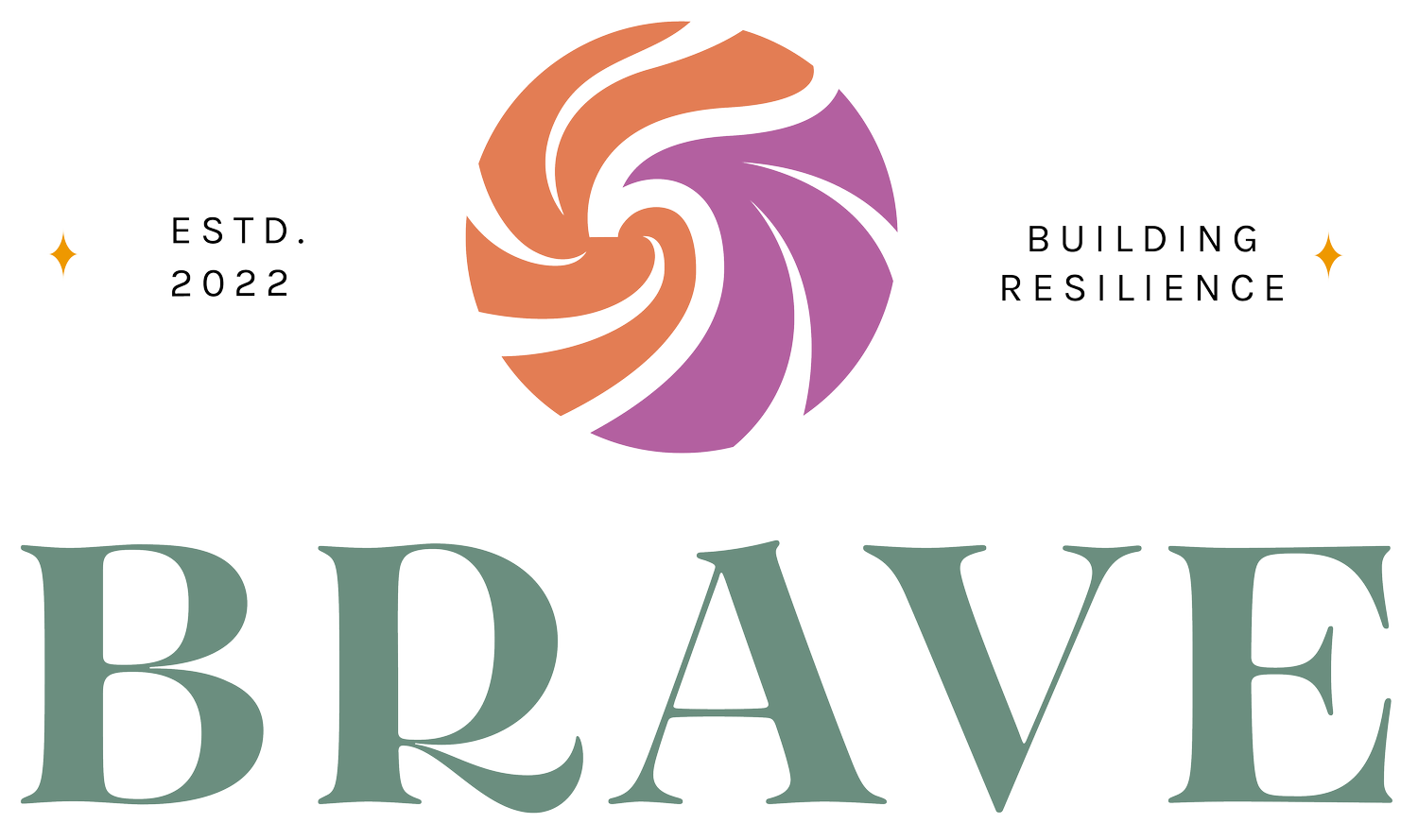Breaking the Ice: Asking About Substance Use in Trauma Therapy
Where Do We Begin in Asking about Substance Use?
As trauma therapists, we get the complex relationship between trauma and substance use. And yet, if you’re like me, you hesitate to ask about substance use if it’s not obviously a problem.
Even after working in the field for over 10 years, I still worry that clients will feel I am judging them or that I’m prying into something “too personal” to talk about in therapy.
In part 3 of 4 of the podcast and blog series leading up to the 2nd annual Braving the Course event, I have the honor of interviewing Betsy as she shares her immense wisdom about how to bring up problematic substance use in empathic and non-judgmental ways.
Keep reading, watch us in action below (and catch sight of our special guest!), or listen in your favorite podcast app.
Understanding the Problematic Range of Substance Use:
Before we dive into the specifics, it's crucial to know the difference between normal substance use and problematic use. As Betsy so rightly shares in the episode, substance use is a normal thing for us humans. There’s nothing inherently wrong with using substances, and they can have a safe and healthy place in our lives. There can also be a fine line between non-problematic and problematic use…
In the most basic sense, substance use becomes problematic when it starts causing difficulties in a person's life. The type of problem is going to vary by client, but know this - As trauma therapists, our goal is not to make our clients quit using substances but to create a safe space where they can talk openly about their substance use.
By normalizing our clients’ experiences and acknowledging how effective substances are for coping with trauma and other stressors, we can help them explore the impact of their substance use on their overall well-being. It is through this empathic exploration that we can support our clients in deciding what kind of substance use, and how much, is healthy (or not) for them at this time in their life.
Bringing It Up: Initiating the Conversation About Substance Use
It’s one thing to ask about substance use during an intake - that’s the normal time to ask all the prying questions! Bringing up the topic of substance use later in treatment can be more challenging though, especially if you haven't addressed it before.
One effective way to start the conversation is by finding a relevant entry point. You can mention a blog post you read (😉😉), podcast you listened to, or a training you attended that discussed trauma and substance use. This external reference provides an opportunity for your clients to share their own experiences without feeling judged or prying.
Dispelling Fears and Assumptions
It's essential to dispel any fears or assumptions that may arise during these discussions. Let your clients know that you have no opinions about their substance use and that your goal is to understand their coping mechanisms better, not to force any change. By emphasizing their resilience in surviving difficult experiences, you create a non-judgmental space where they can explore the impact of their substance use on their healing journey.
Identifying Clients to Address
Not every client is going to need you to ask about about substance use. I loved Betsy’s insight here that a good clue is when you’re feeling stuck with a client. It could be that they aren’t getting any closer to their treatment goals, or maybe they’re suddenly feeling much worse even though you’ve been working together for some time.
Bottom line -When you feel like something is missing or not connecting, it may be a sign to explore the role of substance use in their lives. Remember, your intention is to help them identify any patterns or behaviors that may hinder their healing process.
Screening Questions:
During the conversation, it's crucial to ask screening questions to assess the extent of your client’s substance use. Three key questions can provide valuable insights:
1. What is your history with drinking or marijuana use?
2. Have you used substances to cope with overwhelming trauma?
3. How has substance use impacted your overall well-being and healing process?
Be sure to rephrase these in your own voice, use your own style as a trauma therapist, while getting to the gist of each question.
Listening for Red Flags:
While listening to your clients' responses, pay attention to any red flags that indicate problematic substance use. For example, excessive drinking before bed leading to poor sleep quality or engaging in risky behaviors while under the influence. These signs can help you identify areas where substance use may be hindering their progress and well-being and can be an in road to the tip from the last blog post - experiment with just a 10% change in the way the client uses the substance in their life.
Empowering Clients to Reflect:
Once you have gathered information about their substance use, it's essential to empower your clients to reflect on their experiences. Encourage them to explore how their substance use aligns with their values and whether it is helping or hindering their healing process. By guiding them to examine the impact of their coping mechanisms, you can help them make informed decisions about their substance use.
Ready to Know More?
If this sounds good and all but you want to make sure you have a really strong understanding of how to screen for problematic substance use as a trauma therapist, be sure to join us for the 2nd Annual Braving the Course event!
When you join us LIVE or on the REPLAY, you’ll get to learn with us as Betsy teaches us her 5 tried and true screening skills for problematic substance use and you’ll get a PDF workbook to use as you start to implement the skills in your own practice!
Join our FREE event, Braving the Course on August 28th at 6pmCST.
